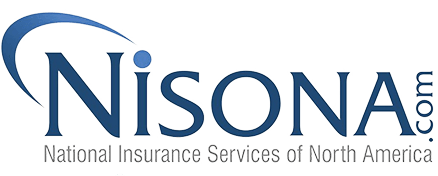Health Insurance Marketplace Exemptions
Do you have questions regarding Exemptions in the Health Insurance Marketplace. We can help!
Do you have questions regarding Exemptions in the Health Insurance Marketplace. We can help!
The Affordable Health Care Act, also known as Obamacare, was enacted and signed into law in March 2010 by President Obama. In a nutshell the law states that all American citizens (with exceptions) are required to have health insurance that meets the minimum essential coverage requirements established in the law. Otherwise they will be required to pay a tax.
I don’t have health insurance. Am I required to get it?
Yes. All citizens are required to have some form of health insurance, even if it’s just essential coverage. Unless you are able to meet the requirements for an exemption, you will be required to forfeit money for a tax penalty. This is known as the individual mandate, or the individual responsibility requirement.
What will I have to pay if I don’t have health insurance?
In 2015, the penalty is higher and will be one of the following:
In 2016, the penalty will be even higher and will be the highest of the following:
After 2016, the penalty charge will be indexed according to the average cost of living.
In every year that the penalty will be put into place, it will be capped at a cost similar to the premium for the median cost of the bronze plan which is available in the Marketplace.
Keep in mind that the penalty is also based on months that you are not covered. For every month that you are not insured, you have the potential of owing one twelfth of the annual penalty. Short periods of time without health insurance may not result in a penalty
Are there exemptions to this health insurance penalty?
Yes, there are exemptions to the penalty. You may be able to qualify if:
Those who do not qualify as part of these above categories, but have encountered a hardship that will make it difficult to purchase health care, have the option of applying for an exemption through the Marketplace.
What other qualifications would help me qualify for an exemption?
You will have the option of applying for an exemption if you have experienced a trial such as domestic circumstances or financial hardships that prevent them from being able to obtain coverage. Certain situations such as the death of a family member, recent substantial medical debt, bankruptcy, homelessness or property disasters fall into this category.
Also, an exception of hardship can be granted to those who live in states where Medicaid hasn’t expanded coverage to residents whose total income is up to 138% of what is considered the federal poverty level. (Please note that most exemptions must be obtained by applying directly through the Marketplace. However, persons claiming low income exemptions may also do so by claiming this directly on their tax return.)
Individuals can also have the opportunity to apply for a hardship exemption if obtaining health insurance would be a big enough burden to cause a deprivation of shelter, food or other necessities. To learn more about hardship exemptions, contact your Marketplace.
How can I request an exemption?
There are two ways to request an exemption: one way is to apply through the health care Marketplace and the other is to apply when your taxes are filed. Please note that some exemptions can be claimed using either type of method.
If you are interested in applying for an exemption based on hardship or religious exemptions, then you must apply for an exemption certificate through the health insurance Marketplace. If you must file in the federal Marketplace, then you cannot file an exemption online. In this case, you would download and print a paper application for the exemption from the web site healthcare.gov, fill out the application and send it in the mail. Eventually, you will receive a response. If the exemption is approved, then it will have an exception number. It’s important to save this document because you will need the exemption number when you file federal income taxes.
To apply for other exemptions such as incarcerated individuals, coverage that would not be considered affordable, members of Indian tribes or members of ministries involved in health care sharing, you will need to go to the Marketplace to apply or claim this exemption when you file your federal income tax return.
Those who are interested in applying for hardship exemptions in states who have not expanded Medicaid eligibility, and who earn 138% or below the federal poverty level, can do so when they file their federal tax return.
Those interested in filing exemptions for short coverage gaps, individuals who are illegally present in the U.S. or other certain hardships, also can be claimed by filing a federal tax return. To do so, it’s required that you file a Form 8965 with your federal tax return. If you have already received an exemption number, then you should include it on this form as well. Otherwise, the instructions for the form will give you steps you should take, and instructions to follow, to fill out the tax return and avoid the tax penalty.
The exemption for earning income under the federal tax return filing will be available automatically and no other special action is required. However, it’s important to note that should you be filing a tax return, you should also include Form 8965 with your filing and check the box to indicate that your income is below the tax threshold.
If you have questions about health insurance exemptions through the Marketplace this year, we are happy to help.
Available 24 hours a day, is our state of the art health insurance exchange quote engine. Use it freely without obligation. We can help you with Enrollments, Billing, Eligibility, Benefit Questions, Terminations, Changes, Renewals, and much more!

Nisona serves the insurance needs of the Treasure and Space Coast.
